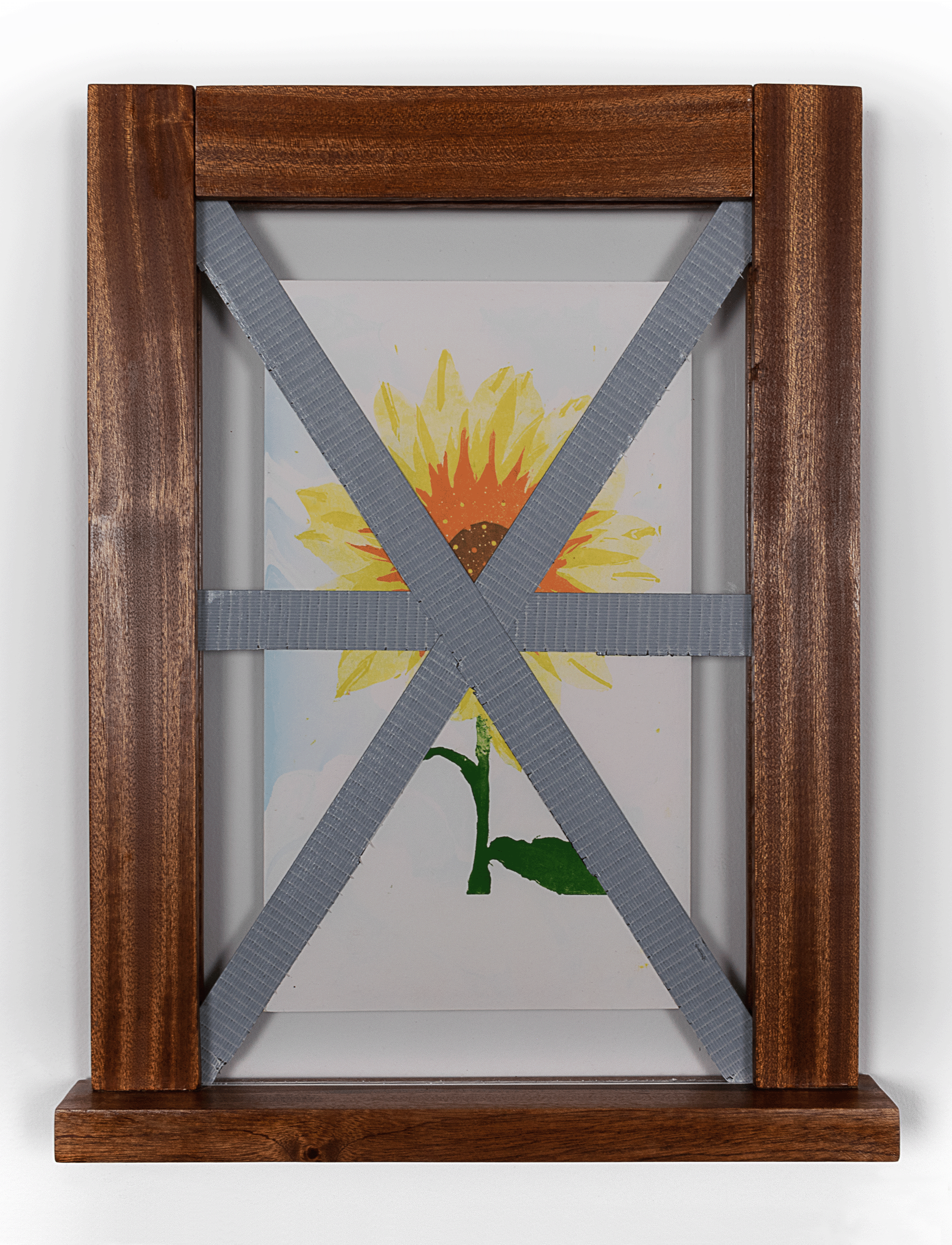Variation #6
By Konrad Will
Print: Variated Edition 1/18
Frame: wooden window frame, tape
Since February 2022, an ubiquitous image has emerged in the international news: windows of houses or apartment crisscrossed with tape in an attempt to prevent injury if shattered by a bomb blast. These taped windows stretch across the entire breathe of Ukraine.
The US has seen taped windows before; it is an all-too-common picture during hurricane season. Katrina, Sandy, Maria—people taped their windows as they braced for the onslaught of a natural disaster.(A) Then they hunkered down in the safest place they could find—be it inside their homes or in a shelter. The storm hit and the impact was catastrophic. Homes were destroyed. Not everyone survived. But the force of nature passed. For those fortunate enough to live through it, the tape eventually came off, and with it, the hope of healing and rebuilding could begin.
But what if you could never remove the tape? What if, every day for the last two and half years, you faced the constant threat that your home, your life, could be obliterated—not by a force of nature—but by a bomb?
As of January 2024, approximately 2 million housing units—about 10% of the total housing in Ukraine—has been either damaged or destroyed. This number is already outdated. Since these numbers were released, over 13,000 explosions have rocked Ukraine, causing even more casualties and destruction.
Russia is not a natural disaster. The bomb and shelling they unleash on Ukraine every day are not acts of nature. Bombs are man-made weapons designed solely to destroy.
The cost of rebuilding Ukraine is currently estimated to be over $480 billion.(B) But rebuilding is only part of the challenge: there is no way to construct a home that can withstand a bomb. The only protection against missiles is to shoot them down before they strike, but even that is not foolproof. Falling debris from intercepted missiles still kills and causes damage.
Russia invaded Ukraine in 2014. For ten years now, parts of Ukraine have lived in constant fear of having their lives destroyed by bombs or shelling. The current invasion has spread that fear across the entire country. When will Ukrainians be able to remove the tape? When will they no longer look to the skies in fear?
A) Experts actually advise against taping windows for both hurricanes and bombs. This does not stop people from doing it.
B) For more on rebuilding Ukraine, see Variation #25.
See below for further reading and background. Data updated September 2024.
KSE Institute update of damages caused to Ukraine’s infrastructure due to the war, as of January 2024, Kyiv School of Economics, Updated 12 Feb 2024.
Ukraine: Mid-year metrics 2024, Armed Conflict Location & Event Data (ACLED), 10 Aug 24.
Ukraine needs $486 bln to recover, rebuild after nearly two years of war—World Bank, Reuters, 15 Feb 24.
Air Raid Alert Map of Ukraine, Real time data, Automatically refreshes every 15 seconds.


